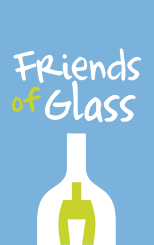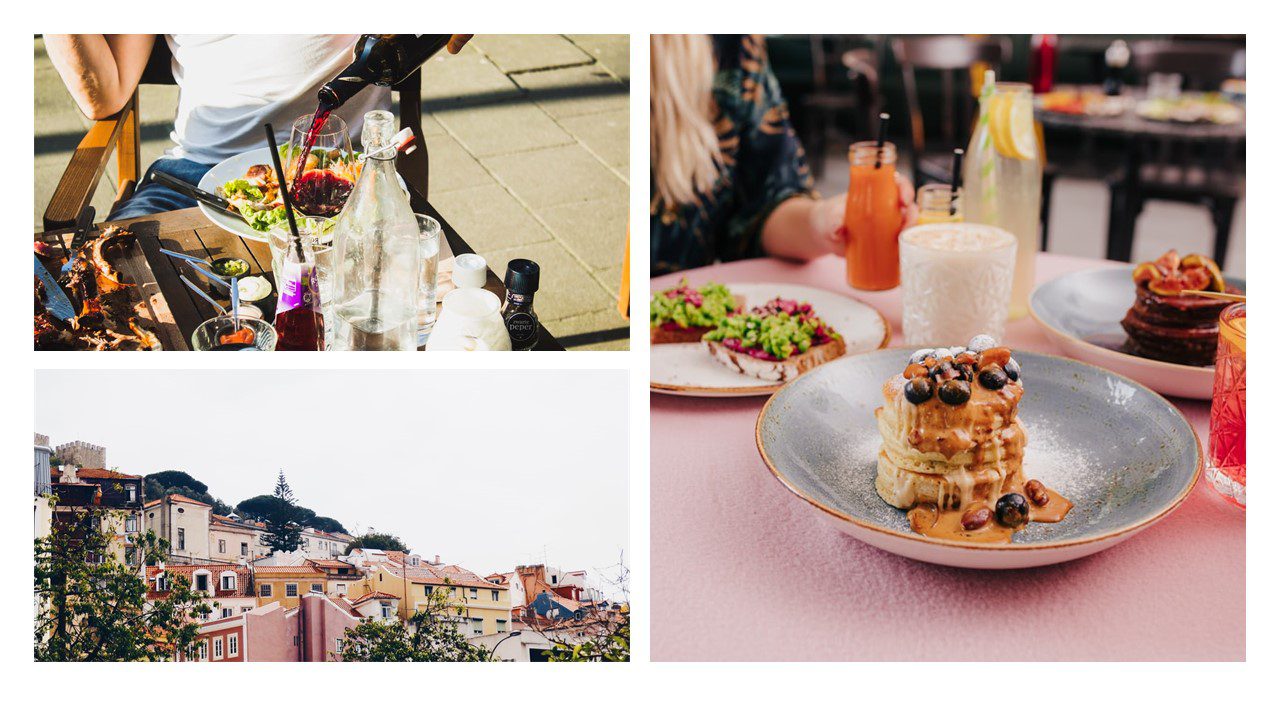
Building Back Better – Glass, Sustainability and the HORECA Sector
HOW CAN THE GLASS VALUE CHAIN HELP THE RECOVERY OF THE HOSPITALITY SECTOR IN EUROPE?
Love going to restaurants, sharing moments of celebration with friends and family around one table? What about marking the end of the workday with an apero in your favourite bar or pub, or spending lazy weekend mornings catching up over brunch in a café? Or maybe you're a city break addict, and love hopping between European capitals and exploring the sights. After a long year of lockdowns and restrictions, the HORECA sector (shorthand for Hotels, Restaurants, Bars & Cafés) is coming back to life, and we couldn't be more thrilled.
Glass is there for all these moments, whether it’s the olive oil we reach for at the table, the wine bottle passed between friends, or even the milk bottle we pick up on our way back to our holiday accommodation after exploring a local farmer’s market. Given its health benefits and endless recyclability, it’s no surprise that 91% of Europeans would recommend glass as a better packaging material. If we want to make sure that this glass gets into the recycling, and ultimately make a more sustainable lifestyle part of the new normal, the HORECA sector plays a huge part. Here’s how.
![]()
WHY DOES GLASS RECYCLING MATTER FOR HOSPITALITY?
Last year, people involved in all stages of the glass collection and recycling value chain launched Close the Glass Loop – a major glass recycling action plan for Europe. Glass is seeing very high rates of recycling across Europe – but we know we can do better. To properly close the glass loop, we need to make sure that all the glass containers are properly collected, recycled and processed. That’s why we want to collect and recycle every last bottle, jar and flacon that goes out to your favourite bar, restaurant or hotel, from Aberdeen to Agrigento, and bring it back into the loop. We’re doing this by bringing all the key players together.
On 30 June, Close the Glass Loop marked its first birthday. In a year like no other, the world has had to face a health emergency along with widespread and urgent closures. But this didn’t stop our partners from sharing information, supporting each other and driving widespread action to create a solid chain of collection, differentiation and recycling of glass. And at the same time, the world has been spending more time than ever at home, and that’s good news for recycling. Many of us have learned to differentiate better and more, with success stories ranging from an estimated 34% of households in Germany, Poland and the UK recycling more glass packaging over lockdown, to a 5% increase in glass recycling seen in just four months in Italy. The numbers are on the increase, so let’s hope it stays that way as we look to a new normal!
As we venture back into the world and start to return to our favourite restaurants, bars and cafes and book long-awaited city breaks away, there are questions about how the reopening of hospitality venues will look and how their safety can be top-of-mind (for citizens and the environment). The HORECA sector is going further to meet this challenge, embracing the need for sustainability and environmental attention that has been made clearer than ever over the last year. One question on their lips? With the hospitality sector being like a big house, in the words of Marie Audren (CEO HOTREC) – one where many people come together to share a meal or a drink, from breakfast to aperitifs and beyond, and where guests come and go – how can we make sure that the use, collection, recycling and redistribution of glass is effective, from room to room, and from hotel to hotel?
HOW IS PACKAGING RECYCLED IN THE HOSPITALITY SECTOR?
Long story short? It varies. This is exactly why the European hospitality sector – represented by HOTREC – has joined Close the Glass Loop, and committed to working with all of the partners to achieve a glass container collection target of 90% by 2030, and to ensure that this is recycled into the container glass production loop to come back as a new packaging. This makes HOTREC the fourteenth industry representative to join the partnership, which also relies on eleven national platforms as its “allies” throughout Europe: from Italy to Portugal, passing through England and Sweden.
Each country and region works in its own way: in some regions, venues prefer to focus on the refill of the packaging, meaning using food, drink and condiments on tap, and having a limited and stable number of glasses, bottles and dishes in rotation. In others, the distribution and collection of containers is the focus, bringing them back into an endless cycle. These particularities from country to country, even region to region and city to city, create hurdles when it comes to collecting and sorting as much glass for recycling as we possibly could. That’s why collaboration of the whole value chain through a platform like Close the Glass Loop is such an important step.
![]()
LET’S TALK ABOUT AN APERITIF.
For starters, not all countries share the same timetable, and not all countries are equally fans of draft beer – for some of us, it wouldn’t be an aperitif without Aperol Spritz on the table, while for others, the classic and timeless wine bottle is preferable. Or again, the location can make a big difference to how easy it is to recycle packaging: not all premises are equidistant from the collection and sorting centre, and this can make operating the classic recycling cycle more challenging, even trivially compared to the level of emissions. Respecting these trends, and trying to anticipate them in order to better guide them towards a way of collecting and recycling that can work well in the local context, is the only shared priority, and that’s why we’re working to develop and share great examples of ‘best practice’ all over Europe!
This means creating not so much a one-size-fits-all solution, but a rich tapestry of ideas where people can draw inspiration, while still having the freedom to tailor it to their own venues or local guidelines. One example? Spain – where as much as 52% of one-way glass packaging is consumed in HORECAs – has perfected bottle banks with a wide mouth and a specific opening for HORECA operators. This design makes a big difference for establishments with a wider clientele, allowing their staff to recycle a great number of bottles efficiently around their busy service timetables.
That’s why, as we celebrate our own return to the hospitality venues we know and love, we’re also raising our glass to a year of ‘closing the glass loop’ and to these new partnerships which can help to improve the situation across Europe. Let’s ask ourselves how building back better and incorporating more sustainable practices around recycling can go hand in hand for hospitality services, to create an unbreakable endless value chain.
What have you seen in your own country which other countries can learn from? Let us know – @FriendsofGlass on Twitter, Instagram and Facebook!














